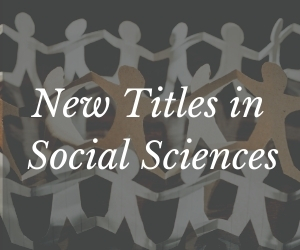System Upgrade on Tue, May 28th, 2024 at 2am (EDT)
Existing users will be able to log into the site and access content. However, E-commerce and registration of new users may not be available for up to 12 hours.For online purchase, please visit us again. Contact us at customercare@wspc.com for any enquiries.
Effective and impartial public administration is the foundation of state legitimacy. This was understood 4,500 years ago when Urukagina, the ruler of a small country in Mesopotamia, proclaimed the first known reform of public service. The quality of public administration will be even more important in the 21st century. Successful states will be those that recognise public service as a key determinant of national competitive advantage. That realisation will generate a radical change in the image of the civil servant — from dull, uninspired public official to passionate advocate of the common good.
This transformation will be the product of the complex challenges arising from the interweaving of globalisation with the '4th Industrial Revolution.' These and related developments are forcing governments around the world to search for public service that can respond to the unprecedented range of opportunities and threats emerging from a rapidly evolving international context. In an increasingly frenetic world ruled by 'Wicked Ostriches' and 'Black Elephants', governments require a civil service capable of achieving five outcomes: i) unlocking the creativity and collaborative spirit needed to solve complex problems; ii) overcoming the fallacy that the private sector is inherently more innovative and efficient than the public service; iii) developing societies that are perceived by their citizens as fair; iv) fostering the trust of citizens in their governments; and v) bolstering the legitimacy of the state.
The author, who is Director of the United Nations Development Programme's Global Centre for Public Service Excellence in Singapore, suggests that these interconnected aims will result in a new phenomenon: the public recognition by political leaders and citizens that future prosperity, political stability, environmental sustainability and social cohesion are dependent on committed and creative civil servants passionate about promoting the long-term national interest.
"I shall pass through this world but once. Any good therefore that I can do or any kindness that I can show to any human being, let me do it now. Let me not defer or neglect it, for I shall not pass this way again."
Sample Chapter(s)
Foreword
Chapter 1: A Manifesto for Public Service in the Age of Anxiety
Contents:
- Introduction: Passionate Bureaucrats: From Oxymoron to National Advantage
- The 'Great Demoralisation'
- Lessons from Lagash: Begin at the Beginning
- The Art of Ambiguity: Tension, Contradiction and Discretion
- Fads, Facts and Fantasies
- Prestige, Pride and Professionalism
- States Made War, and Wars Made the State
- Confusion or Confucian?
- The New Era: Complexity in a Complex World
- The Endless Race for a Creative State
- Conclusion: Passionate Bureaucrats, Happy Citizens
Readership: Development practitioners and policy makers, graduate students of political science, professionals in public administration sectors.


























